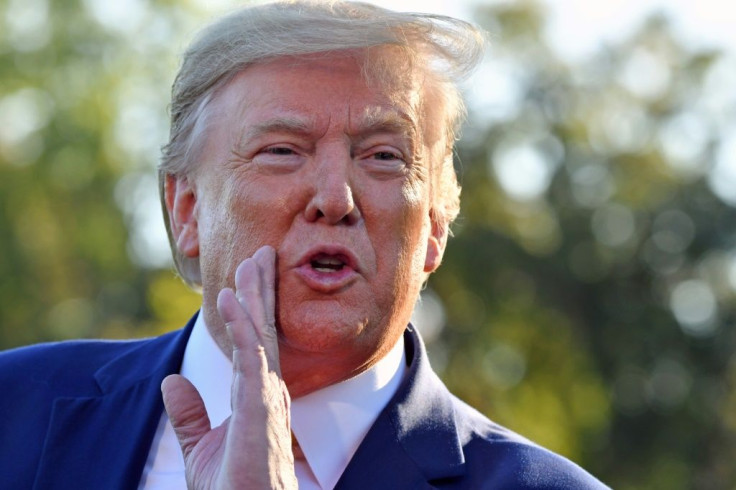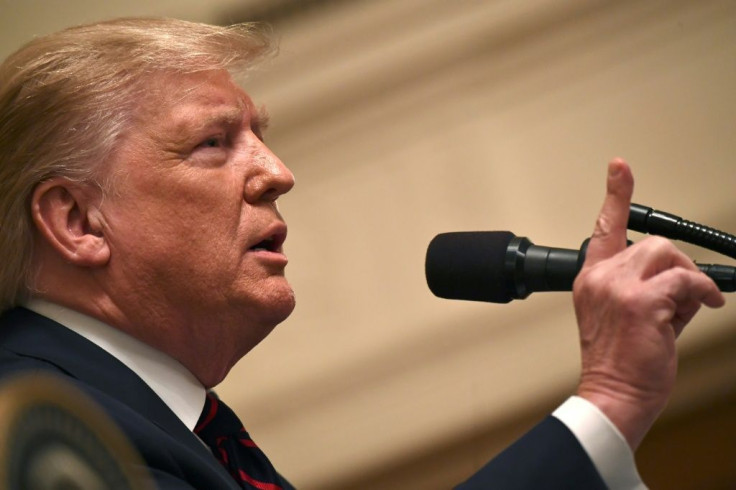Trump Tax Documents Show Possible Financial Fraud, Could Face Criminal Penalties

Newly uncovered New York City property tax documents reveal president Donald Trump might have committed financial fraud to fraudulently obtain bank loans and illegally dodge state taxes, thereby opening him to criminal prosecution and penalties.
The most shocking aspects of the revelations made by investigative journalism organization Pro Publica Wednesday is Trump's relentless efforts to avoid paying the full property and inheritance taxes due the government by resorting to what seems as outright fraud.
Trump's moves were exposed by a series of discrepancies uncovered by Pro Publica. As a matter of course, Trump sought to make his New York City properties look more valuable to lenders and less valuable to federal and state tax authorities. The property tax documents obtained by the source confirm revelations in 2018 about Trump's illegal practices made by Trump's former personal lawyer, Michael Cohen.
“It was my experience that Mr. Trump inflated his total assets when it served his purposes,” Cohen testified before authorities, “and deflated his assets to reduce his real estate taxes.”
ProPublica obtained Trump's now public property tax documents under New York’s Freedom of Information Law. It compared Trump's tax records with loan records that became public when Ladder Capital, one of Trump's lenders, sold the debt on his properties as part of mortgage-backed securities.
One of the executives at Ladder is Jack Weisselberg, son of Trump Organization’s longtime CFO, Allen Weisselberg.
ProPublica reviewed records for four Trump properties: 40 Wall Street, the Trump International Hotel and Tower, 1290 Avenue of the Americas and Trump Tower. It found glaring tax discrepancies at 40 Wall Street and the Trump International Hotel and Tower.
Both buildings were refinanced in 2015 and 2016 when Trump was campaigning for president. Pro Publica reported a $160 million loan for 40 Wall Street was the Trump Organization’s biggest debt at the time.
The trouble is 40 Wall Street was underperforming, making a huge loan necessary to keep it viable. The building was charging below-market rents and its profits were hardly existent.
With the help of Ladder and Jack Weisselberg, Trump got the loan but used spurious and illegal data to obtain it, including a false claim the building's occupancy rate was on the rise. The 40 Wall Street documents reveal discrepancies related to costs and occupancy.

Pro Publica revealed Trump received a 10-year loan with a lower interest rate than the building previously had. He also got terms that allowed him to defer paying off much of the principal until the end of the loan.
Among the illegal reporting made by Trump for 40 Wall Street are:
- Insurance costs for the building in 2017 were listed as $744,521 in tax documents and $457,414 in loan records.
- Trump reported paying lease rights amounting to $1.65 million in 2015 for the building to the government. Investigations later discovered Trump paid only $1.24 million.
“I don’t know why that would be off,” said Jason Hoffman, chair of the real estate committee for a professional association of certified public accountants in New York State.
Experts say there are legitimate reasons for numbers to diverge between tax and loan documents. But in Trump's case, some of the gaps appear to have no reasonable justification.
“It really feels like there’s two sets of books. It feels like a set of books for the tax guy and a set for the lender,” said Kevin Riordan, a financing expert and real estate professor at Montclair State University who reviewed the records. “It’s hard to argue numbers. That’s black and white.”
The New York Times previously reported Trump participated in tax schemes involving “outright fraud.” Trump also crafted “a strategy to undervalue his parents’ real estate holdings by hundreds of millions of dollars on tax returns.”
Trump is still facing a lawsuit in Panama brought against him by his business partners claiming Trump’s hotel management company failed to pay taxes on millions in fees it received.
Pro Publica said it interviewed a dozen real estate professionals and these people saw no clear explanation for multiple inconsistencies in Trump’s documents. The discrepancies in Trump's records are “versions of fraud,” according to Nancy Wallace, a professor of finance and real estate at the Haas School of Business at the University of California-Berkeley.
“This kind of stuff is not OK.”
© Copyright IBTimes 2025. All rights reserved.





















